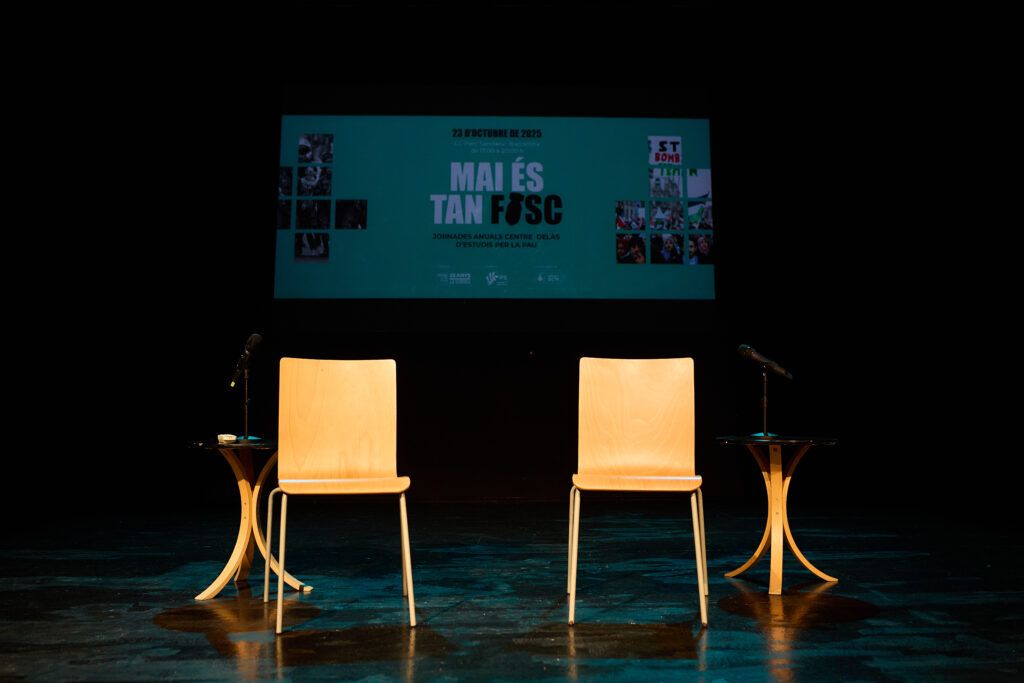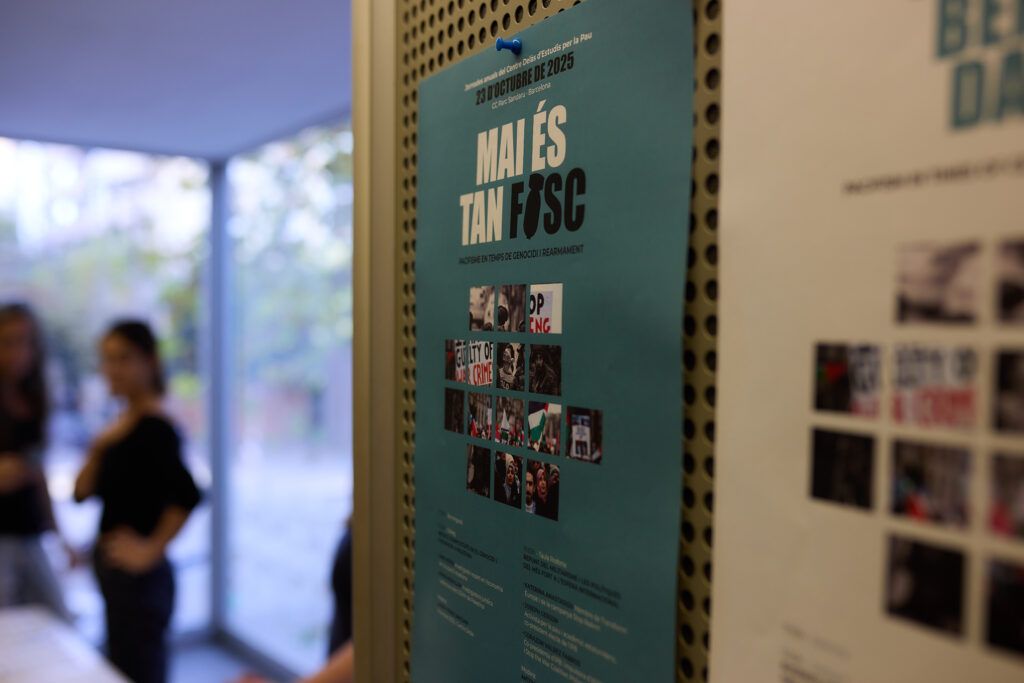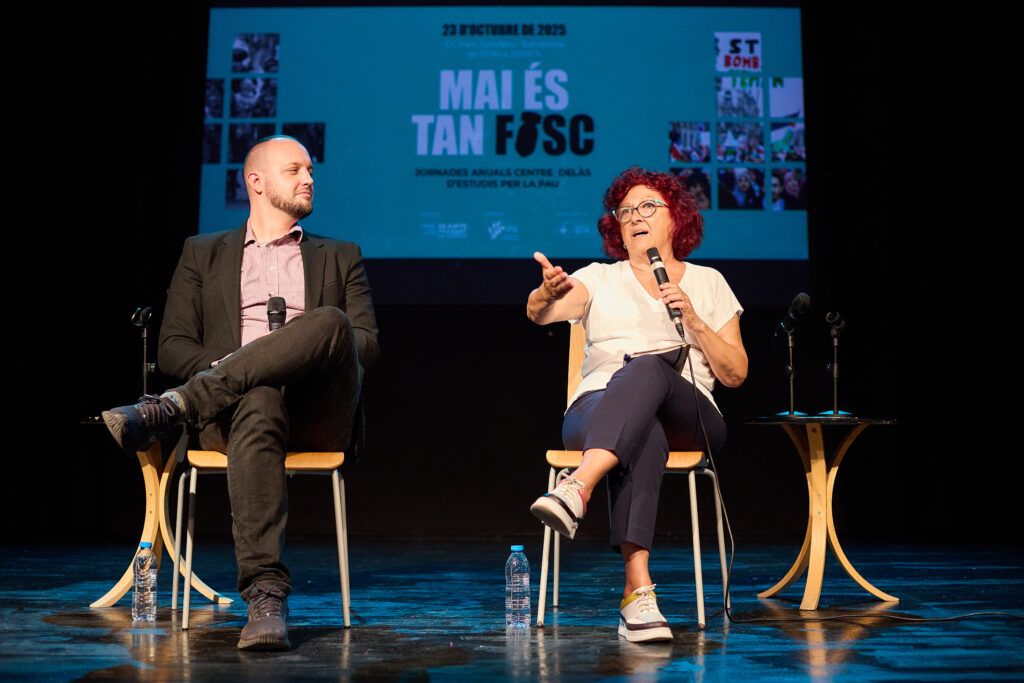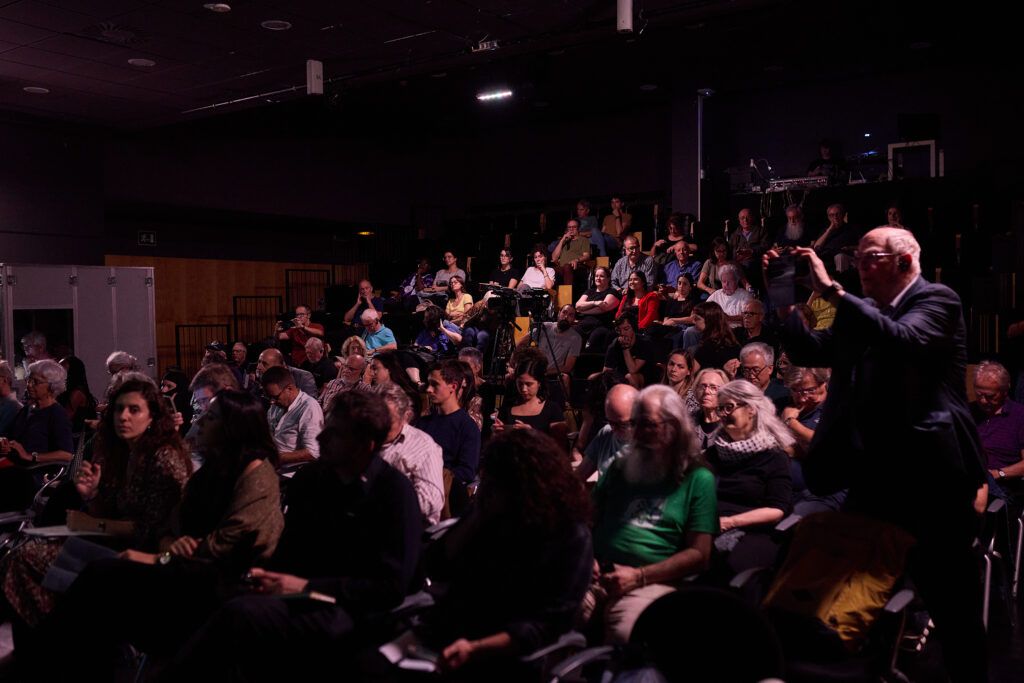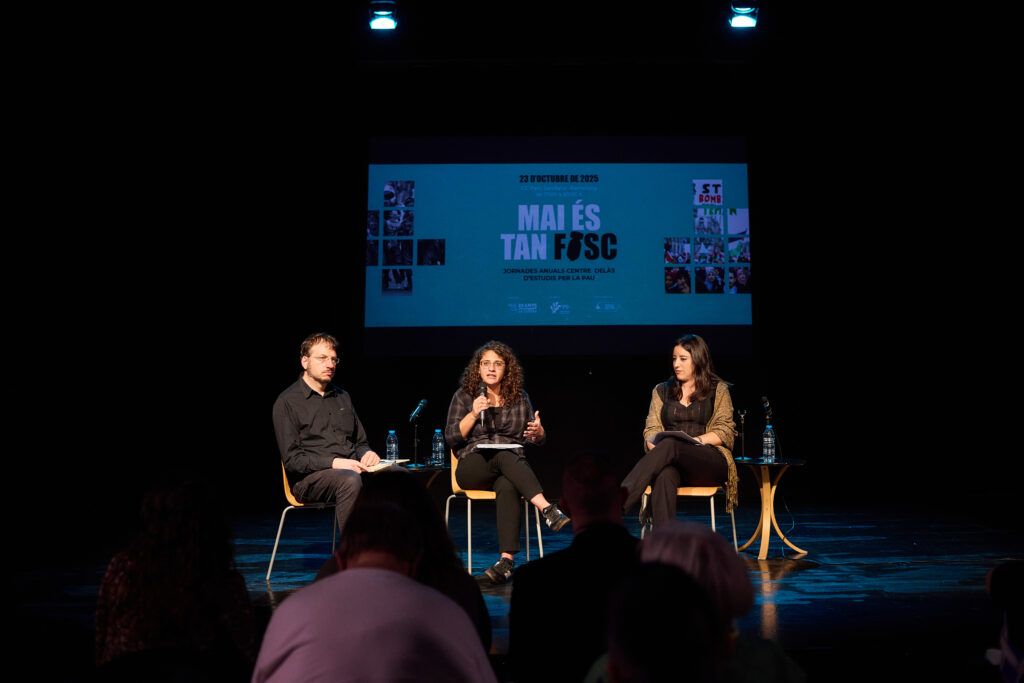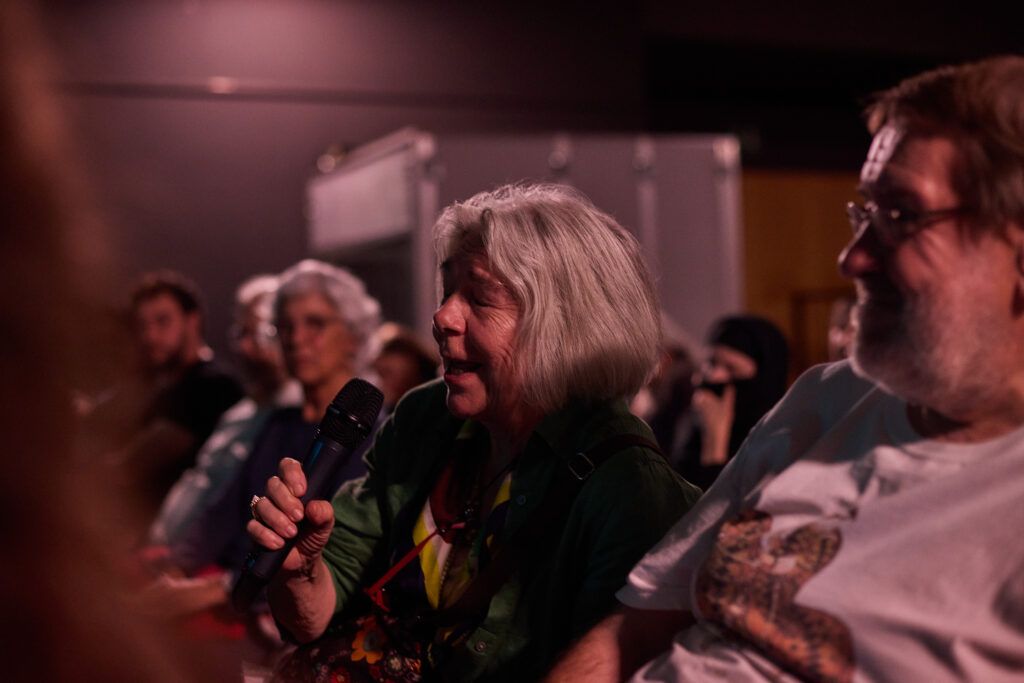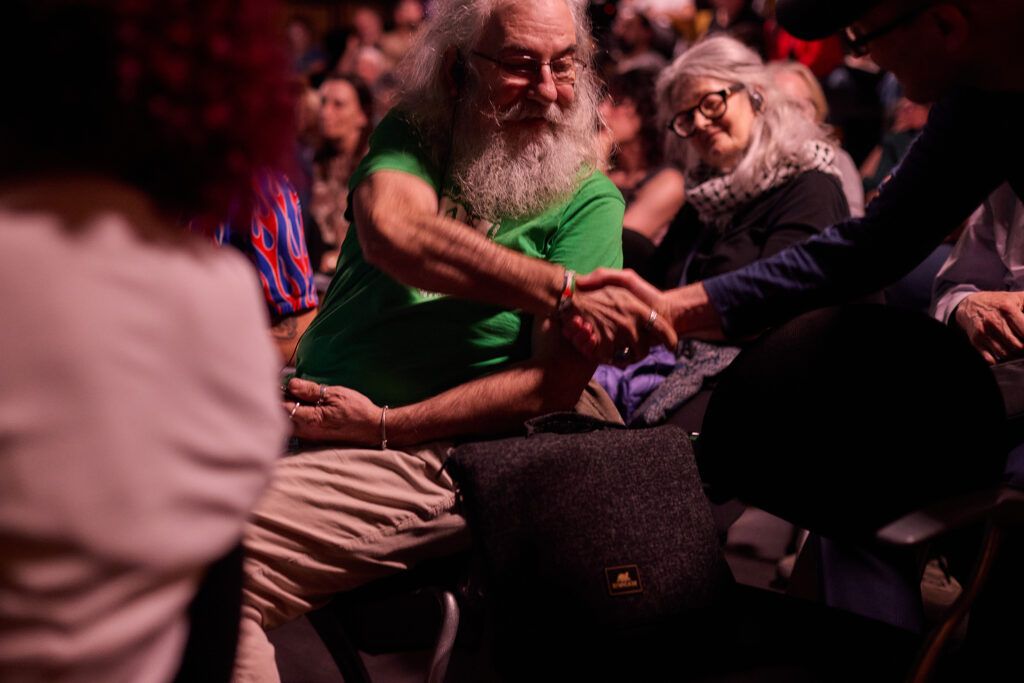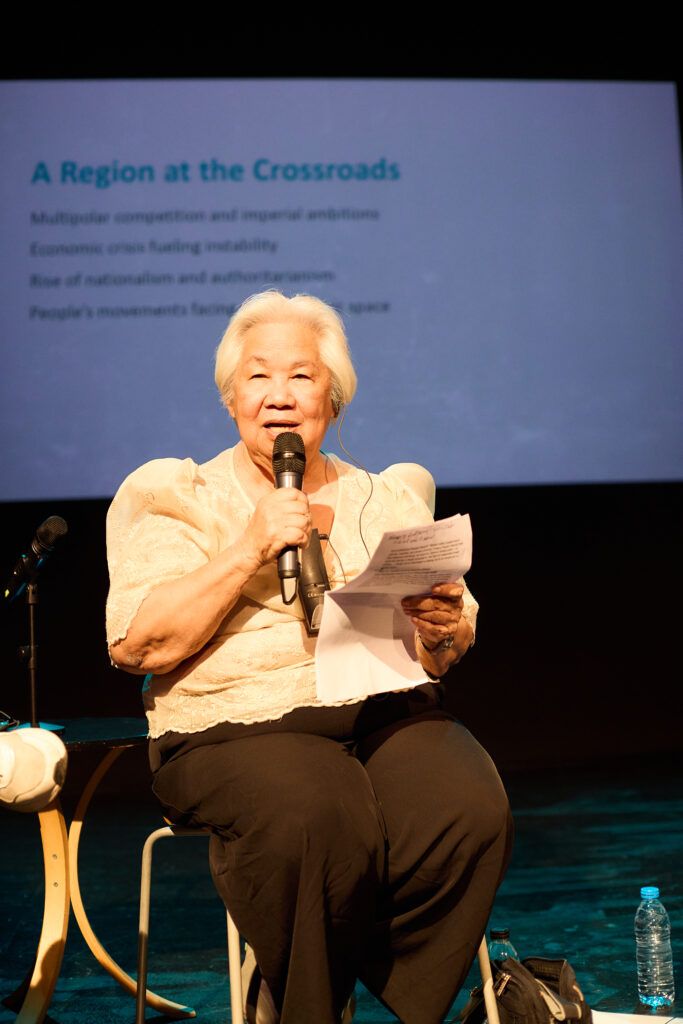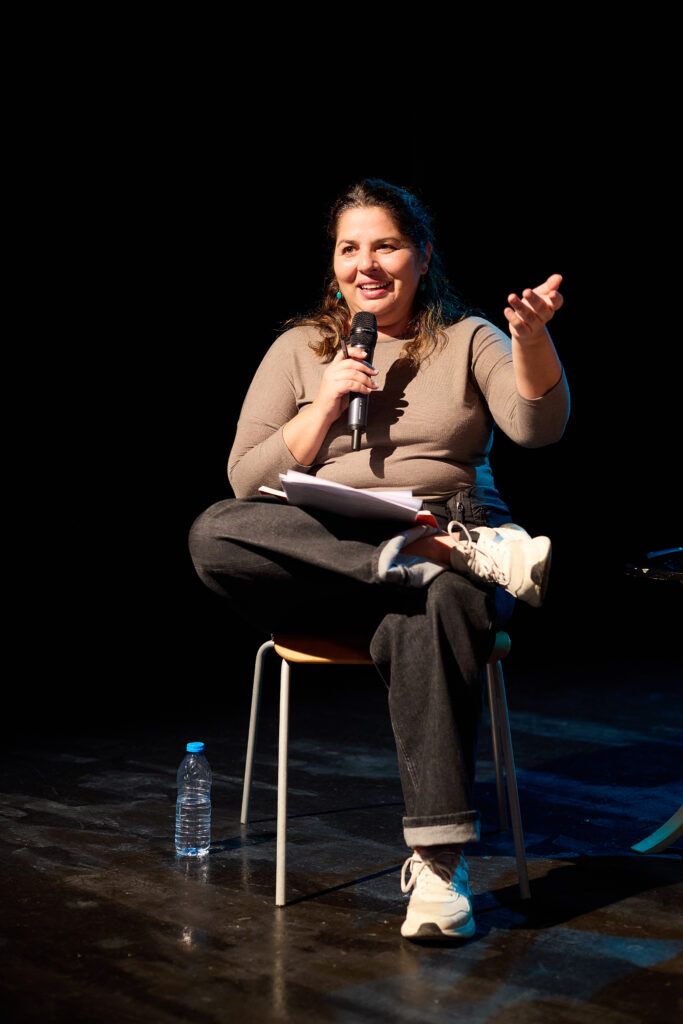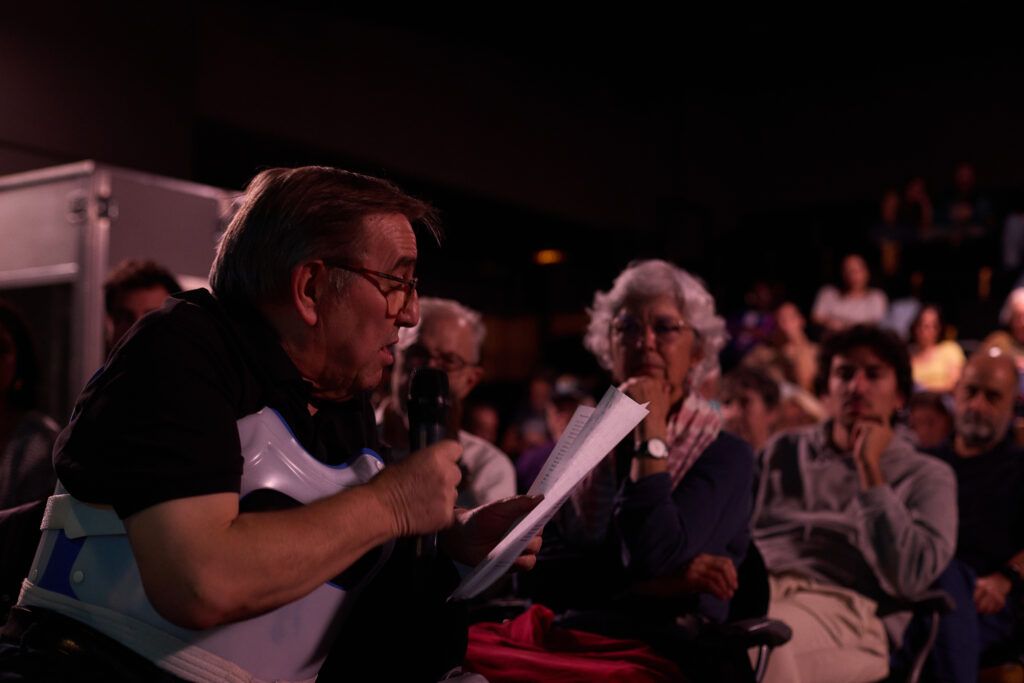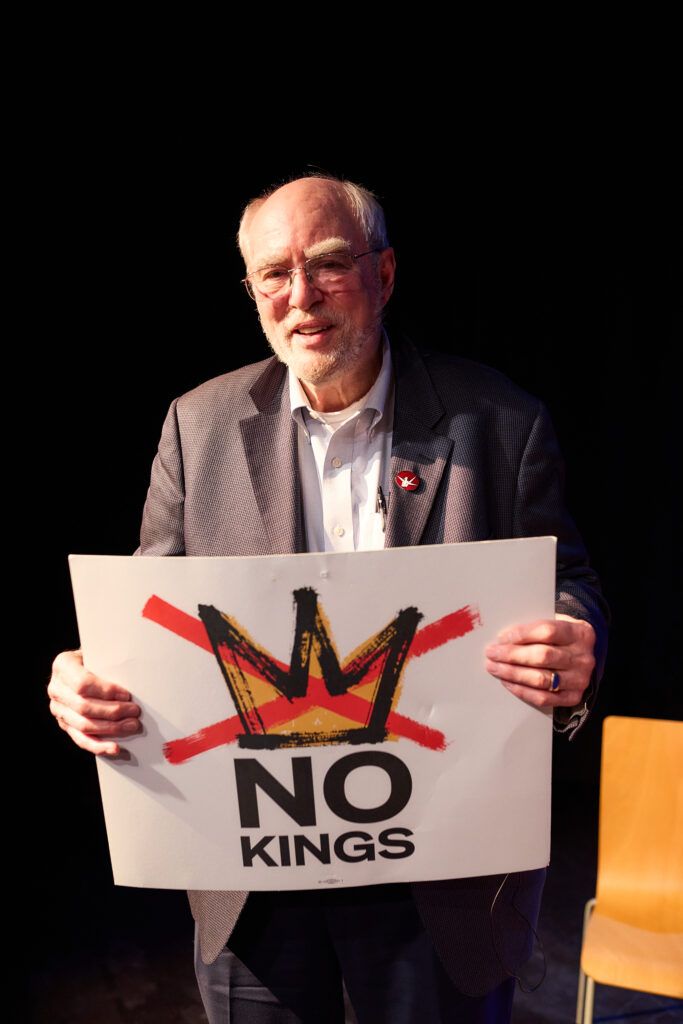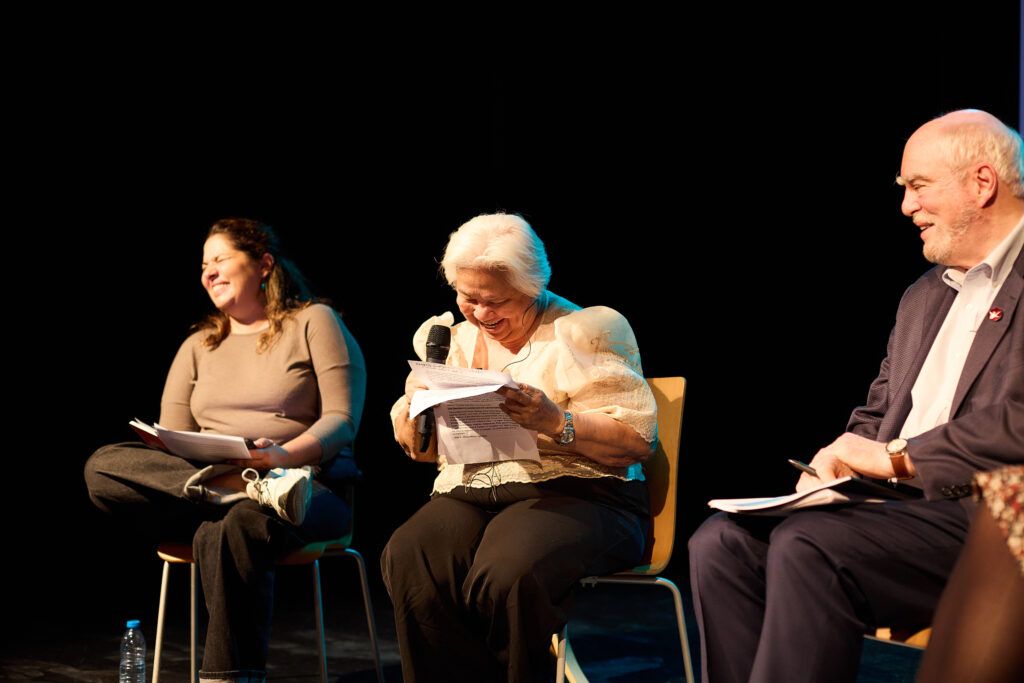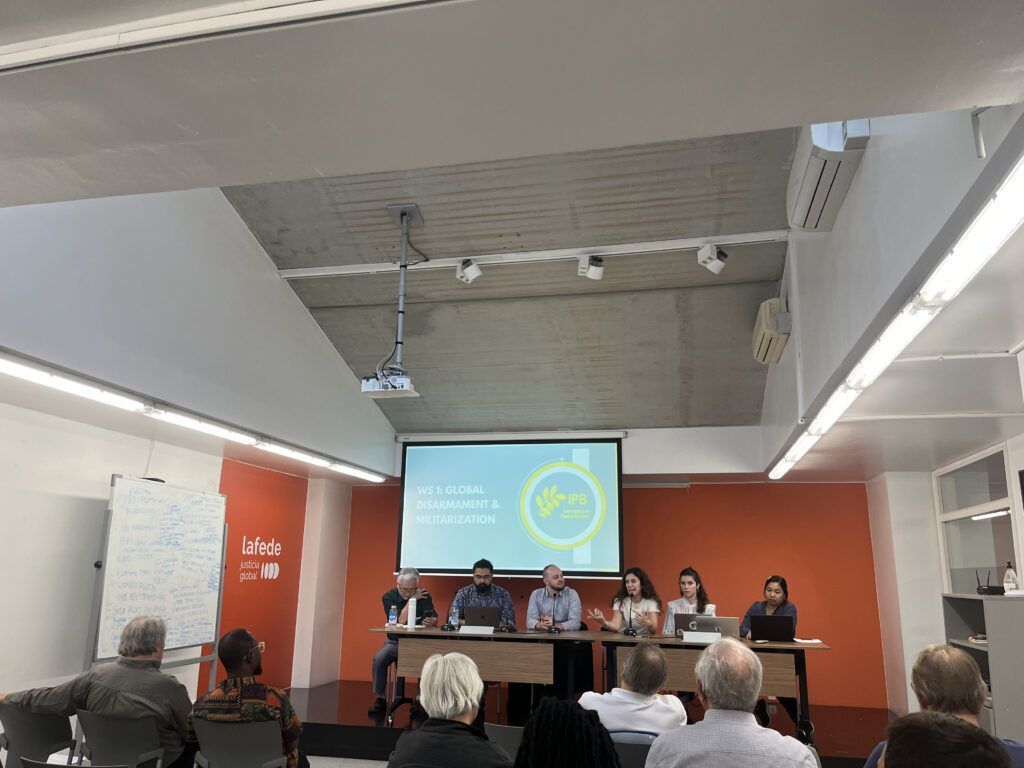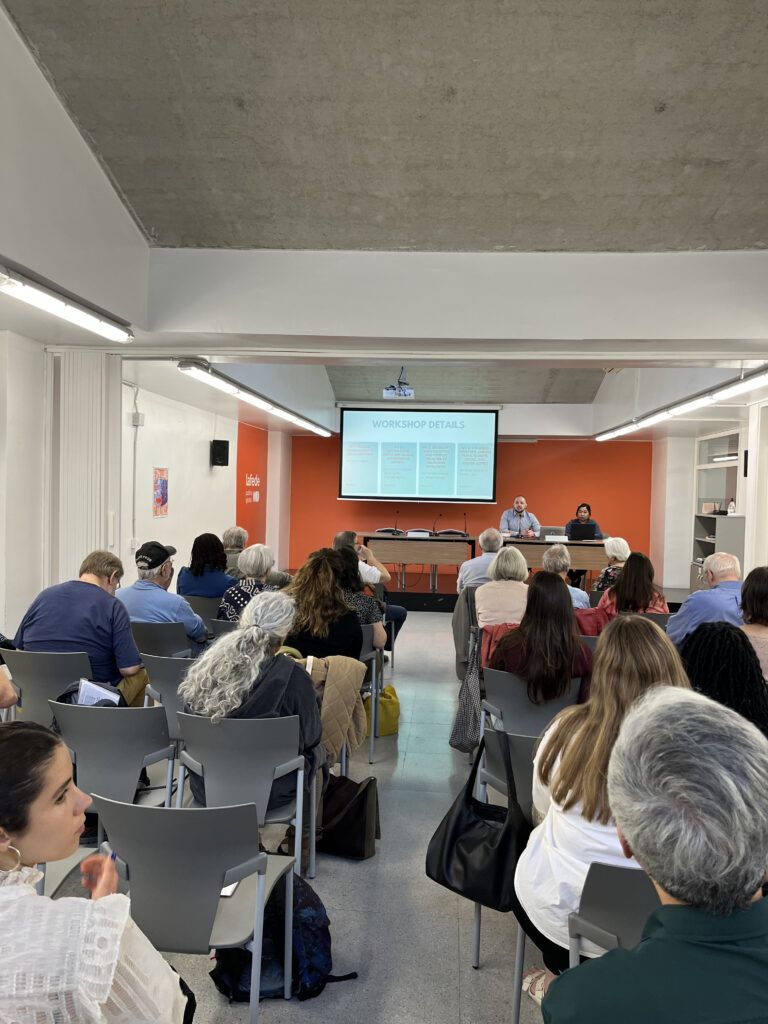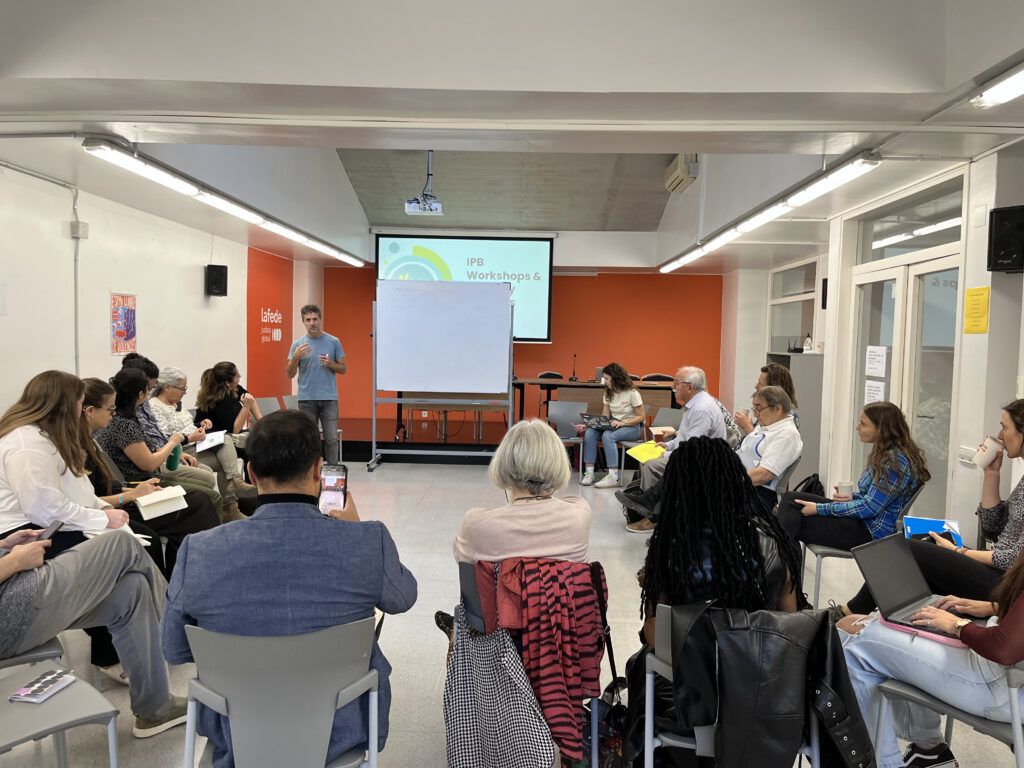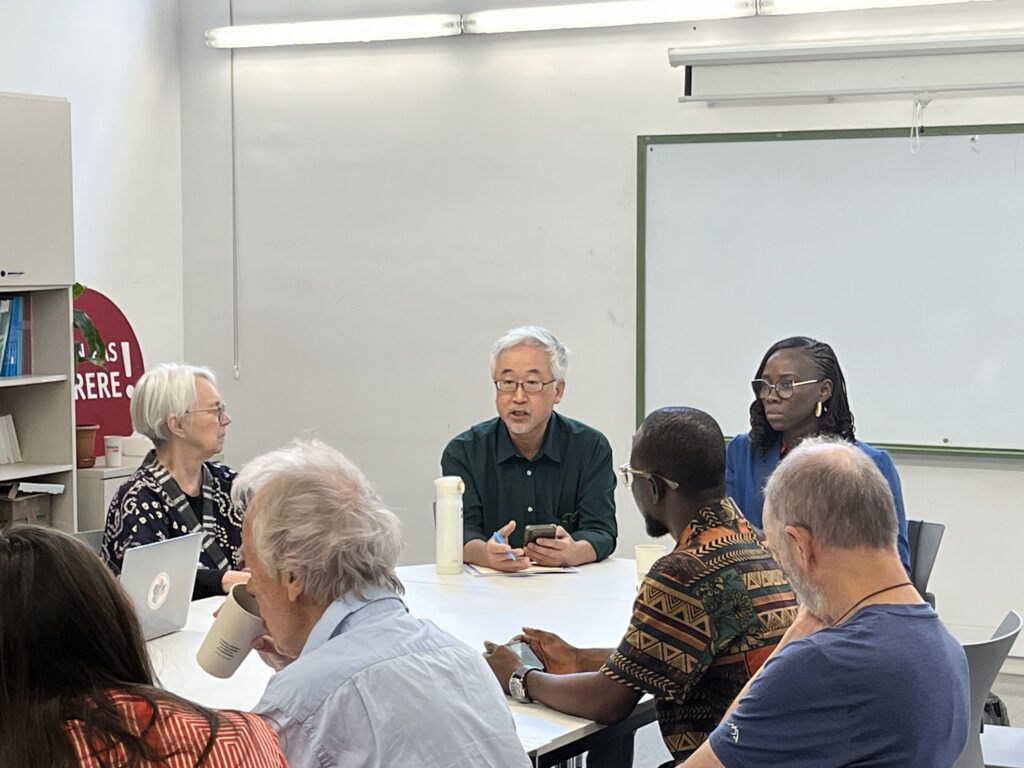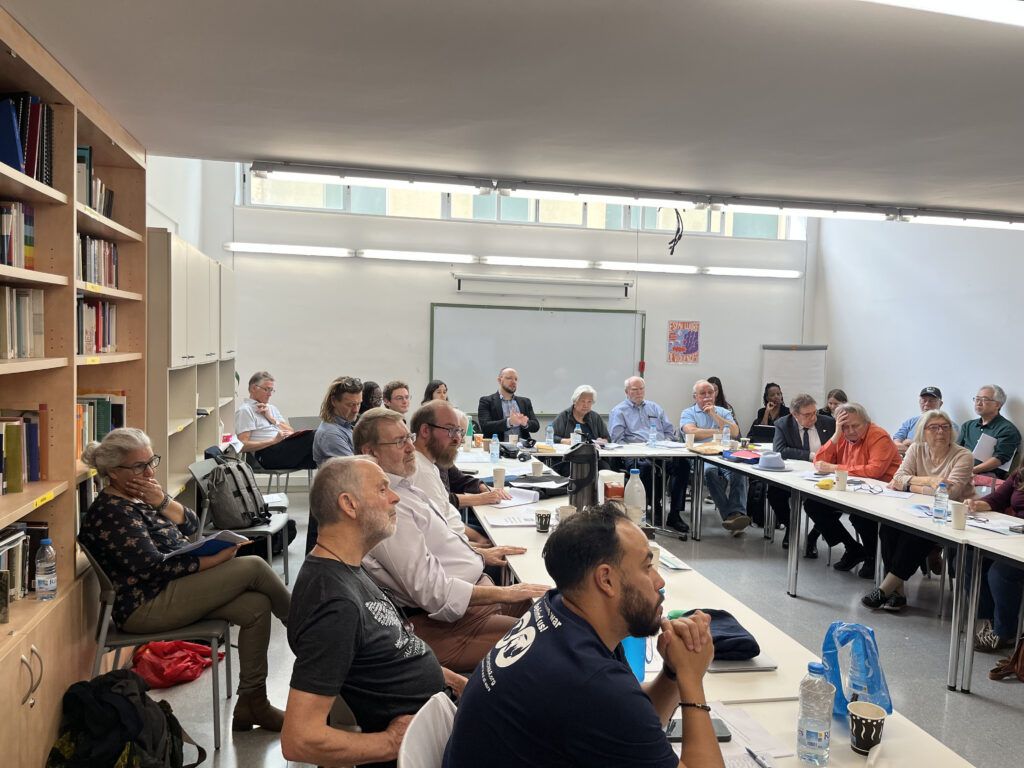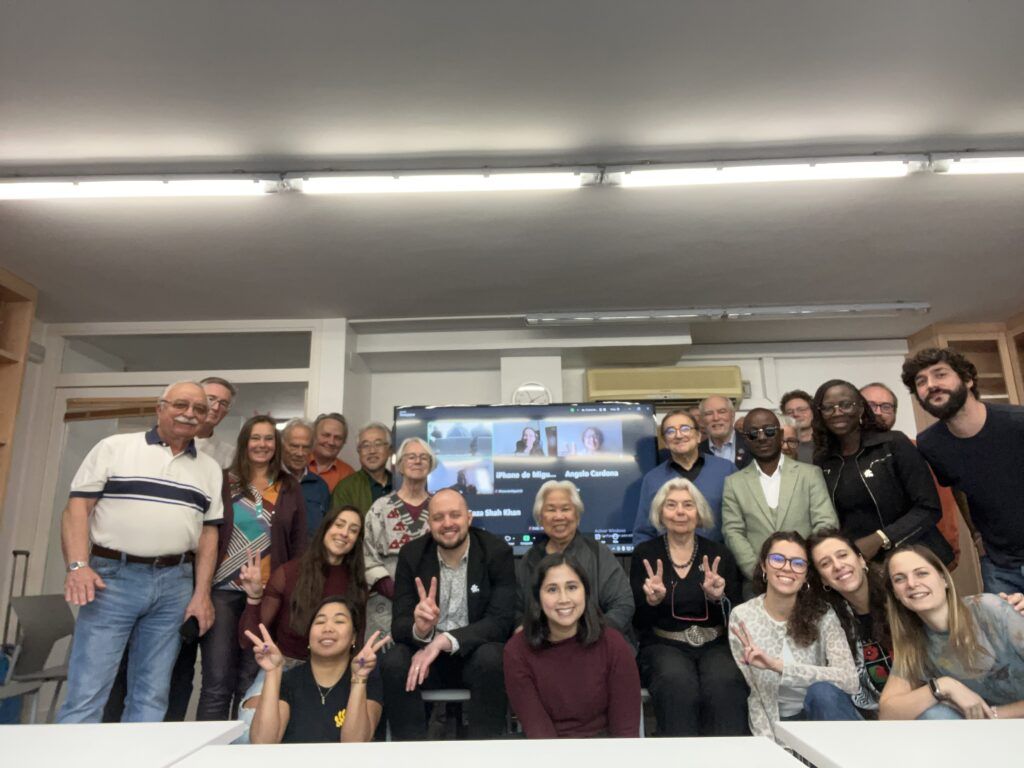4Days4Peace – Barcelona, October 23–26, 2025
Organized by the International Peace Bureau (IPB) and the Centre Delàs d’Estudis per la Pau
From October 23 to 26, 2025, Barcelona hosted 4 Days 4 Peace, a series of events co-organized by the Centre Delàs d’Estudis per la Pau and the International Peace Bureau (IPB), with the support of the Barcelona City Council. The gathering brought together peace builders, researchers, and activists from various fields around the world to exchange perspectives, coordinate strategies, and strengthen the global movement for peace and disarmament.
The event opened on Thursday, October 23, with the Centre Delàs Annual Conference 2025, titled “Darkest before dawn. Pacifism in times of genocide and rearmament.” Held at Sala Sandaru, the conference reflected on two years of genocide in Gaza, Western complicity, and the growing normalization of militarism. Participants called for non-violence and alternatives to the policies of rearmament and authoritarianism.
Read more: 4Days4Peace in BarcelonaThe conference featured two main sessions: a dialogue on “Business and Complicity in the Genocide and Occupation of Palestine” with Shir Hever and Maha Abdallah, moderated by Laura Ferre Sanjuan (recording available on YouTube here); and a roundtable on “Rising Militarism and Power Politics in the International Arena” with Katerina Anastasiou, Joseph Gerson, and Corazon Valdez Fabros, moderated by Antonella Di Matteo (recording available on YouTube here).
On Friday, October 24, participants took part in workshops and strategy sessions organized around four thematic areas:
- Global Disarmament and Militarization – the risks of global rearmament and the need for civil society–led disarmament initiatives was addressed. Topics such as the impact of militarization on austerity policies and public welfare, the diversion of resources from social, environmental and next-generation programs, and ethical concerns related to war and genocide where discussed. Initiatives such as GDAMS, StopRearmEurope, the No to NATO network, the 10% for All campaign agreed to build synergies between the campaigns for stronger collective impact and proposed setting a common global mobilization date to unify efforts and increase visibility.
- Geopolitical Shifts and Global Governance Reform – how to strengthen international law, multilateralism, and the UN system to respond to current crises was explored. Proposed future visions included decentralizing global power structures, democratizing global institutions, reforming the UN system and redefining the notion of security. For each of these proposals, the role of IPB was discussed, highlighting the importance of focusing on areas of greatest impact like using IPB’s network to promote peace education, advocacy, and mobilization, facilitating dialogues around Common Security to review and revitalize the concept regionally, strengthening cross-movement cooperation and functioning as a knowledge exchange hub where alternative assessment reports are elaborated, deepening IPB’s distinctive voice.
- Solidarity with Palestine and Peoples Impacted by Militarism Worldwide – coordinating civil society action in solidarity with affected communities in Palestine, Sudan, DRC, Cameroon, Myanmar, and Ukraine was the focus of the workshop. Solidarity platforms, webinars, conferences linking movements across regions, workshops integrating different analyses and investigative journalism efforts exposing violations of human rights were highlighted as examples of current strategic actions. Looking forward, it was suggested that solidarity strategies are framed by decolonial and justice-based lenses that prioritize the following: ensuring solidarity is interactive and grounded in local realities, strengthening the promotion of democratic and peace-oriented initiatives and broadening anti-imperialist analysis, among others.
- Stronger Together: Linking Peace, Climate, Social, and Gender Justice – examining the interconnected nature of the conflicts and global issues we are facing today. Participants highlighted the need to give space to underrepresented voices, bridge generational and regional divides, and remain mindful of power dynamics that can replicate forms of oppression even within peace movements; they also highlighted the gap between state and human security – noting that as the former expands, the latter often declines – and called for peace work rooted in people’s daily realities. Concrete examples included cooperation between U.S. and Russian students through joint photography projects, union engagement for peaceful redistribution and workplace democracy, and cross-movement trust-building between peace and environmental activists. The Helsinki+50 process was recognized as an opportunity to foster East–West and North–South dialogue. The session concluded with a proposal to organize joint actions around Earth Day (April 26).
The weekend of October 25–26 was dedicated to the Triennial Meeting and General Assembly of the International Peace Bureau (IPB), the organization’s highest decision-making body. The event brought together 19 Board and Council members in person from the different regions in the world and 16 Board and Council members online, along with several individual members and external observers who joined both onsite and remotely—bringing the total to over 50 participants. Representatives of member organizations and partner networks engaged in formal and informal discussions, reviewed the progress made since the last Annual Council Meeting in 2024 and the last Triennial in 2022, and contributed to shaping IPB’s strategic direction for the coming years.
During the meeting, 19 new organizational members that had applied in 2025 were formally approved, expanding IPB’s global network to a total of more than 400 organizational members and 450 individual members.
Moreover, the 2025 Annual Report of IPB Activities 2024-2025 was presented:
In addition, five resolutions were adopted:
- Global Governance Reform in a Shifting Geopolitical Landscape
- Building a Common Movement through Cross-Movement Collaboration during Overlapping Crises
- The Urgency of Disarmament Revitalization
- Digitalizing IPB’s Data Management and Expanding Communication Platforms and Budget
- Development of an Advisory Group
The Assembly also approved the financial report for the previous year and adopted the 2026 budget.
4 Days 4 Peace reaffirmed the commitment of IPB and Centre Delàs, as well as all the other participants, to challenge militarization, promote common security, and strengthen solidarity among global peace movements working toward a just and sustainable future.
